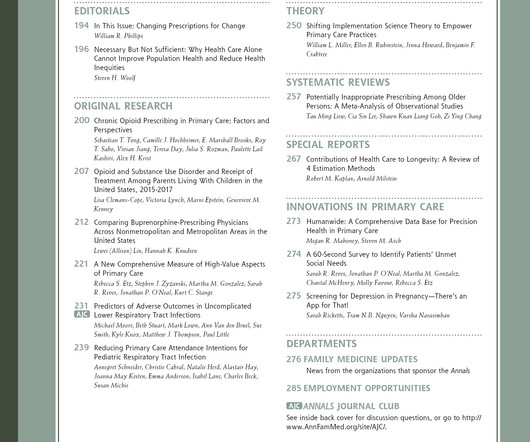What Is Nutrition Counseling and How it Can Help You Achieve Your Weight Management Goals
Dr. Michael Bazel
DECEMBER 7, 2024
It takes into account several key factors: Health conditions: Properly managing health concerns like diabetes, high blood pressure, or digestive disorders. Building a Positive Relationship With Food Many people associate food with guilt or stress, particularly when managing weight. It includes the following: Medical history.


























Let's personalize your content